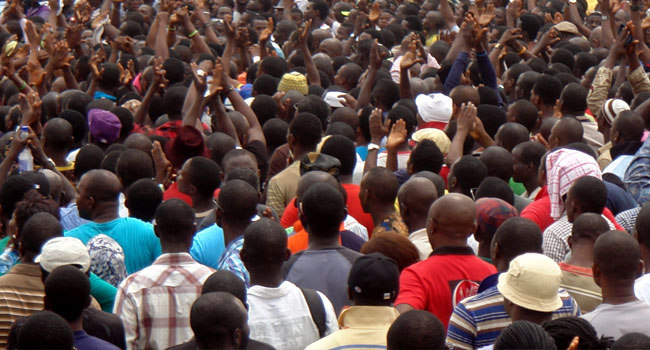CEM REPORT, FINANCE | Reports have revealed that the Federal Government of Nigeria (FGN) spends $220 per Nigerian per year.
Social sectors receive very less than a quarter of the national budget allocation.
The report released by the World Bank for its Nigeria Finance Review notes that Nigeria ranked 167th out of 174 countries on the World Bank’s Human Capital Index.
The bank added that Nigeria needs to increase spending to boost economic development, adding that Nigeria would need to invest about $3 trillion to boost its economy.
”Despite its vast development needs, Nigeria spends only $220 per Nigerian per year, and at merely 12% of GDP, this is one of the lowest levels of spending in the world.
“Unfortunately, low public spending translates into poor development outcomes. The country is among the eight economies with the lowest human capital in the world, ranked 167th out of 174 countries on the World Bank’s Human Capital Index.
“As a result, a child born in Nigeria today will only be 36% as productive when he grows up as he could be if he had access to effective education and health services.
“In addition, infrastructure needs also remain extremely high. To provide all the infrastructure the economy needs to maximize its potential, the country would need to invest $3 trillion by 2050.”
On social sector investment, the bank explained that Nigeria not only is spending low, but social sectors receive very little – less than a quarter of the national budget allocation.
Compared with similar countries, the report revealed that Nigeria’s spending on social sectors – education, health, and social protection – is very low, citing that In 2021, and at a time when the country was battling the COVID-19 pandemic, the average Nigerian received about $15 worth of public health services a year, compared to $55 per person in Indonesia.
The bank said while this will reduce productivity in the country it added that it will further cripple private investments.
“Low social spending limits the quantity and undermines the quality of health and education services that Nigerians can expect to receive. In turn, this reduces their chances of becoming productive workers and constrains private investment outside of the oil sector”
While explaining that the key challenges that continue to undermine Nigeria’s ability to raise more revenues are low tax rates, tax administration inefficiencies, high tax expenditures, low tax morale, and opaque and complex governance of the oil sector, the World Bank notes that raising public spending lies in raising more revenue.
The bank also rated Nigeria the lowest among five in revenue to GDP ratio.
“At 7% of GDP in 2021, Nigeria’s revenue to GDP ratio is among the five lowest in the world. To boost revenues, the government has initiated important revenue-enhancing reforms over the last two years.
“A few of these measures include increasing the VAT rates (from 5 to 7.5% in 2020), starting the process of limiting tax expenditures in certain sectors (2021), operationalizing the Electronic Money Transfer Levy, and introducing excise taxes on certain “sin” goods (2022).”
Recall that CEM had reported that the International Monetary Fund (IMF) lowered Nigeria’s projected GDP growth for 2022 from 3.4% to 3% due to Nigeria’s weak oil production and the heavy impact of flooding.








